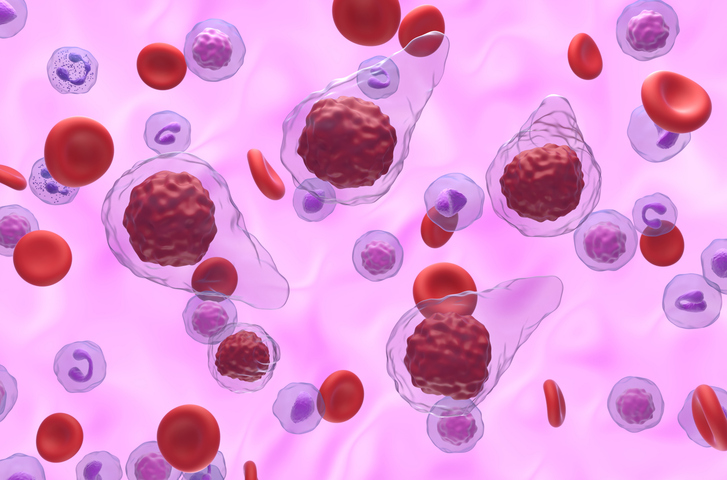
A mouse study suggests that platelet factor 4 (PF4) derived from megakaryocytes (MKs), cells that are known to promote inflammation, plays a critical role in the progression of myeloproliferative neoplasms (MPNs). The results were reported at the 65th ASH Annual Meeting and Exposition.
Researchers used mass spectrometry–based proteomics to assess mice with induced myelofibrosis to learn more about how MKs drive bone marrow fibrosis. The study was presented by Alessandro Malara, PhD, of the Department of Molecular Medicine at the University of Pavia in Italy, and colleagues.
The study included assessments of MKs, bone marrow cells, and platelets in mice injected with the thrombopoietin (TPO) mimetic romiplostim versus controls, as well as cytokine levels in plasma and bone marrow cell–free fluids from treated mice.
Among other findings, researchers reported that the chemokine PF4/Cxcl4 was upregulated in the proteasomes of mice injected with TPO. The chemokine was also found in higher levels in plasma and bone marrow cell–free fluids in fibrotic mice. In mice with high TPO, signaling pathways related to cytoskeletal reorganization, cell adhesion, and inflammation were often activated, investigators noted.
“Our findings identify a crucial role of MK-derived PF4 in the fibrosis progression of MPNs, providing further support for the potential therapeutic strategy of neutralizing PF4,” Dr. Malara and colleagues suggested.
Reference
Malara A, Capitanio D, Calledda FR, et al. Proteomic screening identifies megakaryocyte derived PF4/Cxcl4 as a critical driver of myelofibrosis. Abstract #1793. Presented at the 65th ASH Annual Meeting and Exposition; December 9-12; San Diego, California.






 © 2025 Mashup Media, LLC, a Formedics Property. All Rights Reserved.
© 2025 Mashup Media, LLC, a Formedics Property. All Rights Reserved.